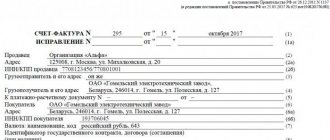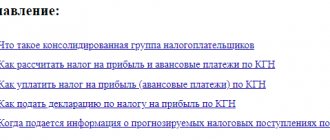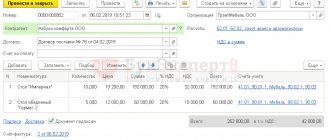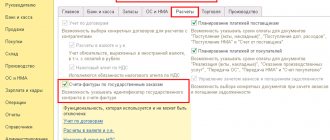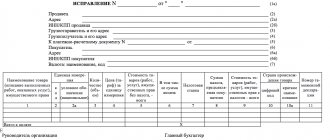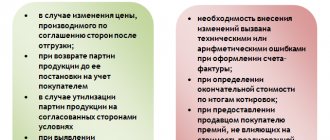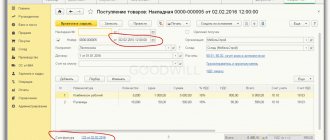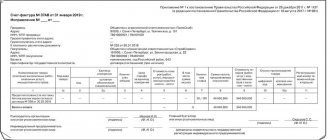Property
Personal property tax is paid by everyone who owns any real estate. This could be a garage, apartment, cottage, land plot. The calculation is based on the value of the property multiplied by the coefficients. There is no need to calculate anything yourself; the tax authorities do this and send the owner a receipt for payment.
Tax calculation table in Kazakhstan
All calculations for the current period are carried out until January 1 of the following year. If the property is new, you need to register it before the end of this line. Next year, calculations are made taking into account new rates.
Real estate
For each region, the state has calculated the basic cost of one square meter of real estate. The calculations take into account useful area, wear and other factors. If you have questions about calculations, you can contact the tax service for clarification.
Tax revenues by category in Kazakhstan
If the property is shared ownership, all owners must pay. The calculation is carried out in accordance with the size of the share.
The tax rate depends on the assessed value of the property. For apartments in Kazakhstan and houses worth up to 2,000,000 tenge, the tax will be 0.05%. For amounts above 2,000,000 tenge, a fixed rate is imposed, which differs by price range. For an amount that is above the lower limit of the price range, an additional fee is charged as a percentage.
When renting out premises, it is also necessary to pay part of the income to the state. It is not necessary to open an individual entrepreneur if hired labor is not used and the total annual profit does not exceed 12 minimum wages in Kazakhstan. In 2021, you can simply enter the change on your tax return. The tax on this profit will be 10% of the amount. Paid once, at the beginning of the next year.
If a person decides to sell his property within a year after purchase, he must pay tax. The rate will be 10% of the benefit received. In the case of a sale at a price lower than the purchase price or for the same price, the transaction must still be included in the declaration, attaching both contracts.
Ownership and use of land
Both individuals and legal entities are required to pay land tax. The main condition is the use of land as the legal owner or user. Religious organizations are exempt from payment. Any land plot is taxed.
Exceptions are public land, roads, since they belong to the state, frozen objects and plots acquired for state investment projects. The law refers to lands organized for agricultural land, industry and populated areas.
Agricultural land is paid based on quality. The state has adopted a special zoning system: in fertile regions, the land tax is much higher than in zones with unpromising use of agricultural land. The difference is from 0.48 tenge to 202.65 tenge.
Among urban plots, land tax depends on the purpose of operation:
- For land used for parking lots and gas stations, the land tax is 10 basic units.
- A tenfold rate is paid for the market territory directly occupied by retail space (counters, etc.). At the same time, the market service area: warehouses, technical premises, laboratories, administrative offices - is paid according to general calculations.
- Payments for land occupied for the construction of casinos and gambling houses have also been increased 10 times.
Approved land tax rates in Kazakhstan
Land tax in 2021 is paid quarterly, no later than the 20th day of the second month after the end of the reporting period.
Objects of taxation
According to regulatory documentation, the objects of this type of tax payment are:
- import - that is, products imported or already imported into the territorial limits of the country and subject to the declaration procedure in accordance with the requirements of customs law;
- turnover – that is, the amount received by the person, the payer, during the sale of collection objects in Kazakhstan. In this paragraph, the following explanation must be given: if a tax resident received collection objects from a non-resident who is not included in the category of persons liable to pay VAT within the Kazakh state, then the tax amount will be obliged to be paid by the person who is the recipient of the VAT objects.
Individual income tax
Personal income tax is levied on those who have objects of taxation. For non-residents, only those located on the territory of the Republic of Kazakhstan are taken into account.
Some of them are taxed directly at the source of payments. This is the salary received, stipend, any one-time payments. A portion of the profit is taken from lottery winnings greater than 50% of the minimum wage in the country. This category also includes pensions from the funded portion and insurance.
Medical insurance in Kazakhstan
A person must independently submit a declaration and pay tax on property income. Individual entrepreneurs and owners of private notary and law practices should follow the same scheme.
When paying, the following are deducted from the taxable amount:
- An amount equal to the minimum wage established by the government of the republic for the reporting month.
- Mandatory contribution to the pension fund within the limits prescribed by law.
- Additional contributions to the funded part of the pension.
- Contribution to savings insurance.
All necessary information must be submitted to the tax service by March 31 of the year following the reporting period.
Social
Social tax is paid by all legal entities, individual entrepreneurs, as well as private practices.
The object of taxation in this case is the cost of maintaining employees, regardless of their citizenship, and payments for services rendered, confirmed by the contract.
Comparative revenues of the main types of taxes in Kazakhstan
Social tax is paid based on:
- 9.5% of the amount paid by the employer for legal entities operating in the territory of the republic. Social tax from January 1, 2018 to January 1, 2025, employers pay in the amount of 9.5%. From 2025, a social tax rate of 11% is envisaged.
- Individual entrepreneurs and private practices, except for those who use benefits, pay for themselves an amount in the amount of two calculated indicators and one for each employee.
- 4.5% is paid by employers who provide jobs in Kazakhstan for people with disabilities.
- Firms making contributions to the state insurance fund are subject to 5% of the amount remaining after making contributions to the fund.
If an employee’s wages are below the minimum established in the republic, social tax is calculated not from the actual salary, but from the established minimum.
Social tax must be paid every month by the 25th. The declaration can be submitted once a quarter, over the next 1.5 months.
Indirect taxes
Indirect taxes are established in the form of mark-ups on goods and services sold. The entrepreneur submits the declaration, but in reality the payment falls on the shoulders of the consumer due to an increase in price.
VAT
Value added tax is a transfer to the budget of part of the cost of goods and services. VAT is calculated by subtracting from the VAT on the sale of goods the VAT for its purchase. All entrepreneurs operating in Kazakhstan must pay it, and a fee is also charged for the import of foreign goods.
Indirect taxes and VAT must be paid only by those whose turnover for the selected reporting period is more than 15 monthly calculated indicators. In 2021, this figure was 31,815 tenge.
There are several ways to register for VAT:
- If the calculated indicator is exceeded.
- If an entrepreneur expects an excess in the new tax period, he can register in advance and pay indirect taxes.
- The tax service can itself punish the entrepreneur if it sees that the amount of turnover exceeds the norm.
14% of taxable turnover is paid to the state. At the same time, among export goods, only non-ferrous and ferrous metals are taxed.
Excise taxes
Excise taxes are also indirect taxes. Excise taxes in Kazakhstan cover all types of alcohol and alcohol-containing products, cigarettes and other tobacco products, motor fuel (except aviation fuel), cars, oil, and gas condensate. All legal entities associated with the production and export of these groups of goods must pay them. They are joined by gambling business owners and lottery organizers.
Excise taxes on tobacco products in Kazakhstan
Indirect taxes in the form of excise duties are established by the state separately for each type of product.
The timing of excise duty payment depends on the product produced:
- For excisable goods, payments are made three times a month. The reporting period is divided into three segments of 10 days; after every 10 days, taxes must be paid within three days.
- For products made from customer-supplied raw materials, payment is made on the day the finished product is transferred to the customer or his official representative.
- When extracting natural resources that are subject to collection - on the day of transfer for processing.
- When importing goods abroad, excise duty is paid along with customs duties.
- Imported goods subject to mandatory marking - on the day the excise stamps were received.
Export of various product groups from the Republic of Kazakhstan in January 2021
The declaration for indirect taxes is submitted within 15 days after the end of the reporting period agreed upon by the specific legal entity.
Value added tax rates in Kazakhstan in 2021
VAT has clearly defined rates:
- for taxable imports and turnover, the tax rate on added value is 12%;
- for export (except for the export of scrap metal) the interest rate is zero. There will also be a zero rate when performing work or supplying goods related to international transport.
There is also a turnover category that is exempt from paying the value added fee. Such turnover may include financial services, leasing of funds or property, investments in authorized capital, work in the field of geological exploration, import of currency, medicines, rent or sublease of a residential building (or part thereof). A complete list of financial transactions exempt from VAT can be found on the website of the Tax Service of Kazakhstan.
Social Security contributions
Social contributions are another type of mandatory payments. They are transferred to the state social insurance fund by employers for each employee, as well as by “self-employed” residents of Kazakhstan. Benefits in insurance cases are paid from this fund. Payments are transferred through the state pension payment center. Transfers must be monthly, without delays.
Insured events for system participants whose employers transferred social contributions on time:
- Loss of ability to work - payments will begin from the day you receive medical confirmation.
- Loss of a survivor - payments begin from the date of death indicated on the certificate. This condition also applies to those whose breadwinner is officially declared missing.
- Loss of a job due to staff reduction - from the date of registration as unemployed.
- Loss of income in case of maternity leave.
- For the period of caring for a child up to one year.
- In case of adoption of a child under one year of age - from the date of official adoption.
You can apply for payment within a year after the occurrence of the insured event. In this case, the payment will be made for all months indicated by the dates.
Social contributions are calculated based on the employee’s salary. In this case, the amount of mandatory pension contributions is not taxed, so this figure is deducted when calculating. From this amount it remains to calculate 5%. If the wage is less than the established minimum wage, calculations are made according to the minimum wage established by law.
Responsibility for failure to register for VAT.
As previously noted, the tax service monitors taxpayers whose income is close to the threshold level. If the tax office has noted that the minimum turnover level has been exceeded, and the taxpayer has not submitted an application for VAT exclusion within 10 working days, the following occurs (clause 7 and clause 8 of Article 82 of the Tax Code of the Republic of Kazakhstan):
- within 5 working days from the date when the deadline for filing an application by the taxpayer has expired, the tax office sends him a notification;
- If, after 30 working days from the date of delivery of the notice, the taxpayer has not registered for VAT, the tax authority suspends debit transactions on his bank accounts.
In addition, administrative liability is provided for such taxpayers. According to paragraph 3 of Article 269 of the Code of Administrative Offenses of the Republic of Kazakhstan, violation of the deadline for filing a tax application for VAT registration is punishable by a fine in the amount of 50 MCI (145,850 tenge in 2021).
Corporate
I pay corporate tax in several categories:
- Resident companies accepting general rules.
- Appointed for a non-resident of Kazakhstan who has a representative office in the republic or a source of legal income.
Corporation tax is paid on the taxable portion of the income and the taxable source of payments. For a non-resident of the country, it is withdrawn from net income.
Payers of corporate income tax Resident legal entities of the Republic of Kazakhstan
Income tax levies total income, that is, income earned both within the country and abroad. Dividends received from other legal entities and already taxed by the source of payments are deducted from this amount.
Expenses associated with the activities of the enterprise are also deducted from the total amount. These are the costs of producing goods and services, paying utility bills, and transport costs. At the same time, some payments have a limit stipulated by law. These are expenses for the maintenance of business travelers, for routine and urgent repairs of equipment, and training of employees.
All deductions will be made only if you provide documents confirming the expenses. Only those that relate to the current period are taken into account; those that were made in advance are transferred to the next one. Up to 3% of the amount can be excluded if the money went to the maintenance of social facilities.
Tax percentage rates depend on the situation:
- If the main source of income is land, it will be only 10%.
- The general procedure requires paying 30% of total income, taking into account all deductions.
- 15% is taxed on income at source.
For legal entities, the reporting period is one calendar year. The tax return must be submitted by March 31 of the following year. Payments must be made monthly in advance payments based on preliminary calculations. The payment deadline is until the 20th.
Mandatory VAT registration.
According to clause 1 of Article 82 of the Tax Code of the Republic of Kazakhstan, the following are subject to mandatory VAT registration:
- resident legal entities,
- non-resident legal entities operating in the Republic of Kazakhstan through a branch or representative office;
- IP;
- persons engaged in private practice.
Taxpayers should remember that, regardless of their desire, an individual entrepreneur or limited liability partnership is required to register for VAT if the minimum annual turnover is exceeded.
According to clause 4 of Article 82 of the Tax Code of the Republic of Kazakhstan, the minimum turnover, above which it is necessary to register for VAT, is generally 30,000 MCI (the MCI value established as of January 1 of the current year is taken into account).
For simplified individual entrepreneurs using TIS (three-component integrated system), the minimum turnover is 30,000 MCI plus income posted through TIS in non-cash form, within 114,184 MCI.
The turnover of taxpayers applying the special retail tax regime is not included in the minimum turnover. This means that retail tax payers do not pay VAT.
For clarity, let's present this in the form of a table.
Table No. 1. At what amount of turnover do you need to register for VAT?
| Taxpayer | Turnover | Turnover, tg. (for 2021) | Register (yes/no) |
| LLP at ESD | up to 30,000 MCI | up to 87,510,000 tenge. | No |
| LLP at ESD | over 30,000 MCI | 87,510,001 tenge. and more | Yes |
| Simplified LLP | up to 30,000 MCI | up to 87,510,000 tenge. | No |
| Simplified LLP | over 30,000 MCI | 87,510,001 tenge or more | Yes |
| IP on ESD | up to 30,000 MCI | up to 87,510,000 tenge. | No |
| IP on ESD | over 30,000 MCI | 87,510,001 tenge. and more | Yes |
| Simplified individual entrepreneur, does not use TIS | up to 30,000 MCI | up to 87,510,000 tenge. | No |
| Simplified individual entrepreneur, does not use TIS | over 30,000 MCI | 87,510,001 tenge. and more | Yes |
| Simplified individual entrepreneur, uses TIS | up to 30,000 MCI and by TIS by cashless payment up to 114,184 MCI | up to 87,510,000 tenge. without the use of TIS and/or up to 333,074,728 tenge. cashless payment via TIS | No |
| Simplified individual entrepreneur, uses TIS | over 30,000 MCI and/or by TIS by bank transfer over 114,184 MCI | 87,510,001 tenge. and more without the use of TIS and/or 333,074,729 tenge. and more non-cash payments via TIS | Yes |
| SNR retail tax | —- | — | No |
Attention!
According to the Law of the Republic of Kazakhstan No. 382-VI dated December 10, 2020, from January 1, 2022, the minimum threshold for VAT registration will be reduced from 30,000 MCI to 20,000 MCI. And the size of non-cash turnover carried out by individual entrepreneurs on a simplified basis through TIS will be increased from 114,184 MCI to 124,184 MCI.
How to determine the size of turnover and what to include in it? According to paragraphs 1 and 2 of Article 369 of the Tax Code of the Republic of Kazakhstan, the turnover for the purposes of VAT registration includes the amount of turnover:
- for the sale of goods, works, services (except for amounts of non-taxable turnover, in accordance with Article 370 of the Tax Code of the Republic of Kazakhstan);
- when purchasing works and services from a non-resident in accordance with Article 373 of the Tax Code of the Republic of Kazakhstan;
- in the form of residual goods (except for those specified in clause 3 of Article 370 of the Tax Code of the Republic of Kazakhstan);
- for transferred goods from the transfer act drawn up during the reorganization (spin-off), if the new organization is not registered for VAT.
The size of turnover is determined on an accrual basis during the calendar year.
As a rule, the tax service independently monitors the increase in turnover and sends the taxpayer a notification in advance about the need to register for VAT in the near future. However, you should not rely only on the vigilance of tax authorities. It is in the interests of the taxpayer to independently monitor the size of their turnover so as not to miss the deadline for registration.
Customs duties
Customs duty works in both directions: both for the import and export of goods. When importing, legal entities are charged the following fees:
Table of customs duties for import of vehicles in Kazakhstan
- Customs duty in accordance with the tariff established for the current year.
- Cargo clearance fee: 50 euros for the main sheet of the customs declaration and 20 for each subsequent one.
- 12% of the cost of imported goods as VAT.
- Excise tax on imported products subject to this tax.
There are benefits for individuals; free import and export of goods with a total value of up to $1,000 and weighing up to 50 kg per person is allowed. According to the simplified procedure, you can transport up to 5,000 kg of vegetables and fruits and up to 10,000 kg of perishable goods with a total value of no more than $10,000. In this case, the tax fee will be 13% of the total cost. All other goods that are not subject to the mandatory preparation of a customs declaration are transported at 0.6 euros per kg.
Who cannot or is not required to register for VAT?
According to clause 1 of Article 82 of the Tax Code of the Republic of Kazakhstan, the following are not subject to mandatory VAT registration:
- government agencies;
- structural divisions of resident legal entities;
- taxpayers who apply the SNR for peasant or farm enterprises (for activities falling under the special regime).
Such organizations cannot register for VAT even if the minimum turnover is exceeded.
Certain categories of persons are also denied voluntary VAT registration. According to clause 1 of Article 83, the following are not entitled to register:
- individuals who are not individual entrepreneurs or private practitioners;
- government agencies;
- non-residents who do not carry out activities in the Republic of Kazakhstan through a branch or representative office;
- structural divisions of resident legal entities;
- casinos, slot machine halls, betting shops, bookmakers for activities subject to gambling tax;
- taxpayers who did not submit a liquidation declaration in accordance with clause 4 of Article 424 of the Tax Code of the Republic of Kazakhstan.
Sales tax
2016 was the last year in the history of Kazakhstan when VAT will have to be paid. In 2021, it will be replaced by a more transparent sales tax.
First of all, a sales tax will take the burden off intermediate links. Now only the final seller selling the goods at retail will pay. At the same time, this will reduce price increases all the way from the direct manufacturer to the retail outlet.
This will entail changes in import taxes. It will not be possible to completely remove payments to the government: VAT will be replaced by additional import rates, and sales tax will still be collected at the point of transfer of the goods to the user.
The sales tax is intended to both simplify the system and reduce the final cost of goods on the shelf.
VAT calculator RK
Main functions:
- Calculation of deductible VAT from the total amount - will allow you to quickly determine the added value from the total amount of payment for goods or services;
- The calculation of the tax that needs to be added to the cost for subsequent deduction is formed during the transaction based on the price of the goods or services.
In both cases, simple and effective formulas are used that allow you to work with any amounts. In practice, the calculator will significantly speed up calculations. Moreover, it will allow a person who is not familiar with accounting calculation formulas and does not want to make a mistake out of ignorance to obtain accurate data.
How the calculator works
In order to get the result, just enter the required amount, indicate the interest rate, and select the action: deduction or accrual. Next, you will immediately receive a ready-made result that can be entered into reporting. The final amount is indicated in numbers and words for ease of filling out documents.
Please note that you can calculate VAT at 12 percent, and also replace the rate by indicating the current figure. This feature will be convenient if you have to make calculations for international trade and obtain accurate import data.
Subsoil user taxes
To use the country's subsoil, an entrepreneur must sign a contract with the state. This agreement is checked by experts and undergoes mandatory state registration. Only after this can the construction of the facility begin and the use of the country’s natural resources. The same contract specifies the tax system, one of two options:
Table of tax revenues in Kazakhstan by category
- Payment of all mandatory taxes.
- Payment of all taxes, plus transfer to the government of a share of production products.
The second system is more often used in oil and gas production.
List of mandatory taxes:
- Excess profit tax.
- Special payments for subsoil users.
- Bonuses (subscription, commercial discovery).
- Royalty.
- Shares of the Republic of Kazakhstan by production division.
- Additional payment by a subsoil user operating under a production sharing contract.
Subscribe to the Visaasam.ru channel in Yandex Zen
Signature bonus is a one-time fixed payment for the right to carry out subsoil use activities in the contract territory. The starting amounts of signature bonuses are determined by the government of Kazakhstan based on a calculation taking into account the volume of mineral resources and the economic value of the deposit. This bonus is paid to the budget no later than 30 calendar days from the date the contract comes into force. The declaration on the signature bonus is submitted by the subsoil user to the tax authority at the place of registration before the 15th day of the month following the month in which payment is due.
The commercial discovery bonus is paid for each commercial discovery in the contract territory, except for contracts for exploration of mineral deposits that do not provide for subsequent mining. The object of taxation is the volume of recoverable mineral reserves at a deposit, approved by the government body authorized for these purposes. The basis for calculating the payment is the value of the volume of approved recoverable mineral reserves.
Royalties for all types of minerals are paid:
- For oil - on a sliding scale as a percentage determined depending on the volume of accumulated oil production for each calendar year of activity and at rates, depending on the number of tons, from 2 to 6%.
- For solid minerals, including gold, silver, platinum, other precious metals and precious stones - at rates determined by the Government of the Republic of Kazakhstan.
Rent tax
It is collected from entrepreneurs who export crude oil and have not entered into a sharing agreement with the state.
The cost of exported crude oil, gas condensate, calculated based on the volume of crude oil, gas condensate actually sold for export and the market price, taking into account the discount (markup) on the quality of crude oil, gas condensate, minus the taxpayer's expenses for their transportation.
The procedure for determining the market price of sold crude oil and gas condensate is approved by the Government of the Republic of Kazakhstan.
A discount on the quality of crude oil and gas condensate is provided if the quality indicators of the taxpayer’s crude oil and gas condensate are lower than those of the mixture of crude oil and gas condensate that is transported through the main pipeline. A markup on the quality of crude oil and gas condensate is provided if the quality indicators of the taxpayer’s crude oil and gas condensate are higher than those of the mixture of crude oil and gas condensate that is transported through the main pipeline.
North Sea oil production schedule
Rent tax rates for exported crude oil and gas condensate are set depending on the determined market price per barrel - from 0% to 33%:
The taxpayer is obliged to pay the accrued amount of tax to the budget no later than the 15th day of the month following the tax period.
The rental tax declaration on exported crude oil and gas condensate is submitted to the tax authority at the place of registration no later than the 15th day of the month following the tax period.
